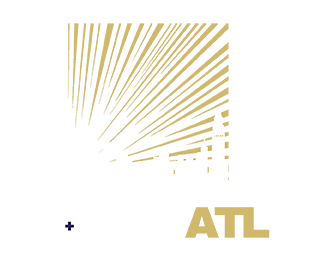If you have been injured -- physically and/or mentally -- as a result of another…
 If you've been injured in an accident, you may be entitled to a personal injury settlement.
But how do you go about negotiating a fair settlement?
The personal injury lawyers at The Fitzpatrick Firm have extensive experience helping accident victims get the settlements they deserve, and have written a post on how to negotiate a personal injury settlement.
If you've been injured in an accident, you may be entitled to a personal injury settlement.
But how do you go about negotiating a fair settlement?
The personal injury lawyers at The Fitzpatrick Firm have extensive experience helping accident victims get the settlements they deserve, and have written a post on how to negotiate a personal injury settlement.
An overview of the basic strategy for negotiating a good settlement of a personal injury claim
There are many factors that go into determining the value of a personal injury claim, including the severity of the injuries, the amount of medical bills incurred, the length of time it takes to recover from the injuries, and whether there are any permanent impairments or disabilities. In order to get a fair settlement, it is important to have a clear understanding of the value of your claim. By consulting with a personal injury lawyer, you can determine the value of your claim and negotiate with the insurance company a fair settlement.Start the Settlement Negotiation Process
File an insurance claim
Filing a claim with your insurance company is the first step of the process. Essentially, when you report a claim, you are informing the insurance company of your loss or losses and that whatever costs/expenses result from it need to be taken care of. Most insurance companies allow you to complete the claims process either by phone or email. The steps you take – although your personal injury lawyer usually will take care of this if you hire one – when filing a claim are as followed:- File and request a police/accident report
- Document every little detail relating to personal injuries and/or property damages,
- Communicate with your insurance company, and
- Receive the phone number/email of the adjuster assigned to your case.
Reject the Claims Adjuster's First Settlement Offer
In a lot of cases, insurance companies will lowball with their first offer but do not panic if this happens to you. It is commonplace for an insurance company to act this way. Likely, they do this with the majority of claims made to them and they may be trying to see if you will bite at the first offer. However, if they offer an amount that is fair to you, or their reasoning for a low offer is valid, then it may behoove you to make an additional request that is a little lower than your original. Regardless, this process will go much smoother if you were to hire – or at least consult with – a personal injury attorney who has adequate experience/success in this domain.Consolidate your records
You will want to gather any and all medical records/bills and/or other expenses from treatment facilities if you received/are receiving follow-up care. These include records and billing statements related to a visit to the emergency room, ambulance transportation expenses, physical therapy received as follow-up treatment, and any potential MRI documentation if it pertains to your case. Medical expenses are arguably the most important details of your claim. Therefore it is paramount that you keep track of all medical records or expenses from any treatment facility you visited.Emphasize The Strongest Points In Your Favor
In order to reach a fair settlement in your personal injury case, you will need to emphasize the strongest points in your favor. For example, if the accident was completely the other driver's fault and they were issued a ticket at the scene, make sure to point that out. You will also want to focus on any serious injuries you suffered as a result of the accident. The more severe your injuries are, the higher your settlement is likely to be. If you have any photographic evidence of your injuries or damage to your vehicle, be sure to include that in your claim as well. It is important to remember that insurance companies are businesses, and their primary goal is to make money. They are not in the business of giving away money, so you will need to be prepared to negotiate for a fair settlement. Hiring an experienced personal injury attorney can give you a significant advantage in the negotiation process. An attorney will know how to build a strong case and emphasize the points that are most likely to result in a higher settlement offer.Calculate your minimum settlement amount
As you can tell, there are a plethora of factors that must be considered when trying to come up with the right settlement offer. Past and future medical payments, property damage expenses, past and future lost wages, and mental pain and suffering are all relevant when it comes to your settlement amount. Remember that hiring an experienced personal injury attorney will benefit you in that they will do most – if not all – of the calculating when it comes to losses. They will compile all of your medical documents together and calculate your pain and suffering damages in an efficient manner. Not only will hiring a personal injury lawyer help to expedite the claims process, but also get you a settlement amount that fully covers your total losses/damages and then some.
How do insurance companies come up with settlement amounts?
Settlement amount decisions made by insurance companies most often times focus on three important elements of your personal injury claim: 1) which driver was at fault and that is seen on the accident/police reports, 2) amount of damages or losses – physical and mental pain and suffering, lost wages, property damages, etc. – endured by the victim, and 3) policy limits of the insurance policy. When it comes to insurance companies and their settlement amounts, it's important to know that there are a few things that usually play into their decision-making process. Primarily, they will look at who was at fault in the accident as reported by the police, as well as the damages or losses suffered by the victim. Additionally, they will consider the policy limits of the insurance policy in question. In short, there are a few factors that go into how an insurance company determines a settlement amount. Knowing this, it's important to be as prepared as possible when dealing with insurance companies. Be sure to have all the documentation you need, including any police reports or medical records, and be ready to negotiate if necessary. With a little bit of knowledge and preparation, you can help ensure that you get the settlement you deserve.How do you counter offer a Personal Injury settlement?
An experienced and diligent personal injury lawyer will do the work for you when it comes to coming up with an effective counteroffer to send to an insurance company. If an insurance company lowballs the first offer, your attorney will draft a second demand – the first demand included the first offer sent, which the insurance company rejected – and send it to the insurance company. Sometimes, and especially so if your lawyer and insurance adjuster have a good rapport or are on similar pages, this process can be done via phone call. There may be some back and forth but for the most part, finding a number that both parties can agree to is a very efficient method.How do settlement negotiations work?
Can I negotiate with the insurance adjuster?
Yes, technically you can. However, when insurance adjusters know they are not negotiating with someone who has experience in this field, they tend not to take any offers seriously from that person. But you can still negotiate with the adjuster on your own accord. It is just the fact that hiring a personal injury attorney for your case will save you valuable time and effort and may even help grant you more in compensation than you previously thought you could get.Common issues during settlement negotiations
- When you purchase an insurance policy with your insurance company, you agree to certain terms and limits that are stated within the policy. That said, some disagreements arise when an insured makes a claim with their insurance company; one being the question of whether the insured’s policy is enough to cover all damages.
- Another issue that tends to arise in settlement negotiations relates to the comprehensive nature of the injuries. Potential injuries suffered prior to the accident and were thus worsened by the collision is just one of many examples. One way to avoid this is by maintaining clear and concise proof – otherwise known as medical records and bills – of any and all injury-related issues.
- One thing that makes negotiating with insurance adjusters on your own very difficult is when it comes to liability. The insurance adjuster assigned to your case may question your story as to what happened, possibly even trying to make you believe that you should be held at fault. Hence why it is imperative to at least consult with a personal injury lawyer prior to filing a claim and trying to settle your case without proper guidance.


